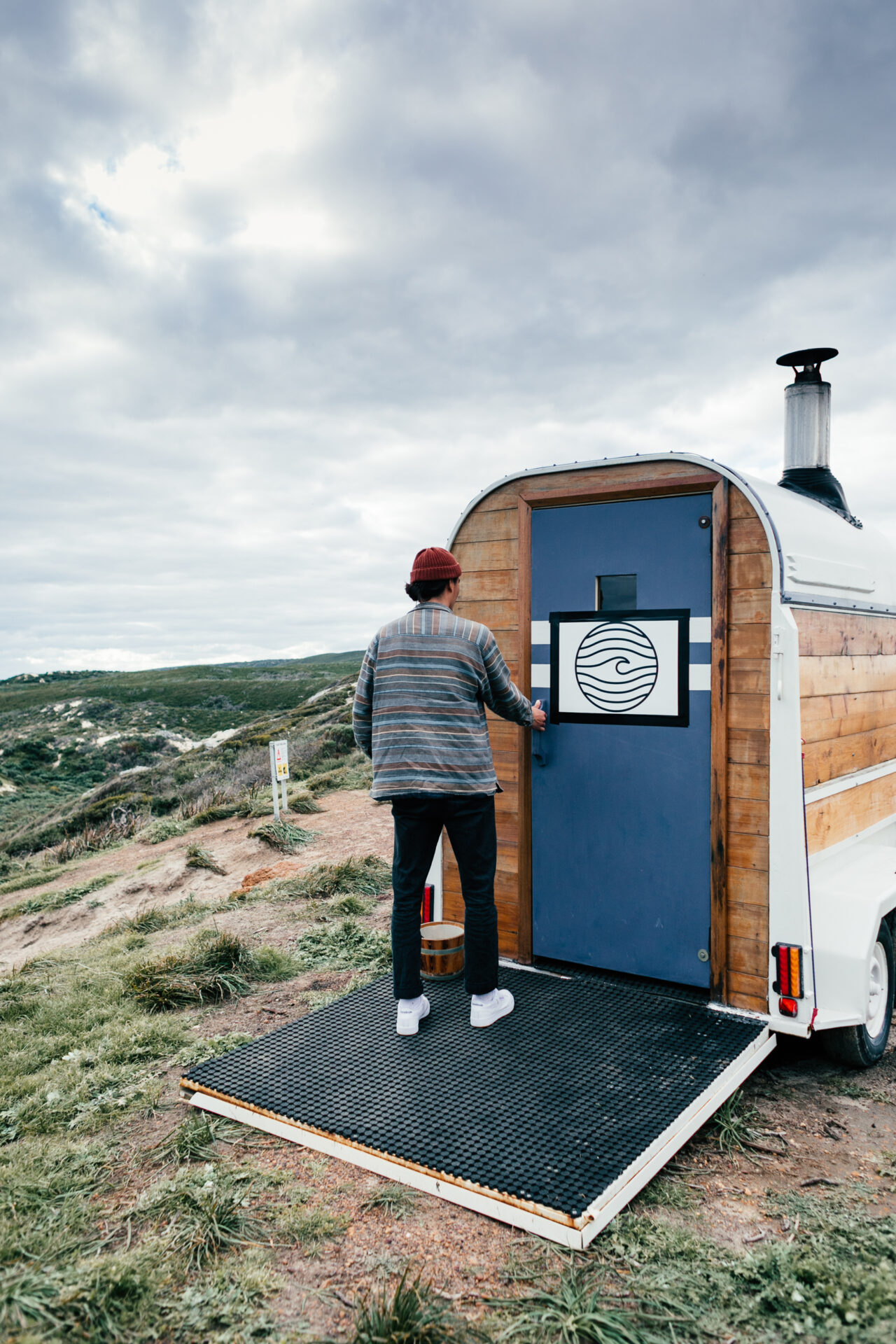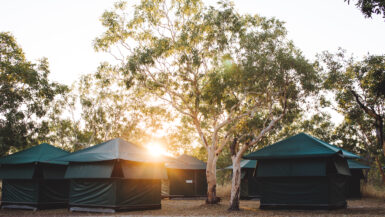South Korea is a country known for its bustling cities, vibrant culture, and delicious food. However, it is also home to some of the most stunning natural landscapes in the world. From the rugged mountains to the pristine beaches, South Korea offers a diverse range of outdoor experiences. For those looking to get away from the crowded cities and immerse themselves in nature, camping is the perfect solution. But if you’re looking to minimize your impact on the environment while enjoying the great outdoors, eco-friendly camping sites are the way to go. In this article, we’ll explore the best eco-friendly camping sites in South Korea that offer a sustainable and responsible way to experience the country’s natural beauty.
Introduction to Eco-Friendly Camping and Its Benefits
Eco-friendly camping, also known as sustainable or green camping, is becoming increasingly popular among nature enthusiasts who want to minimize their impact on the environment while enjoying the great outdoors. This type of camping involves using sustainable practices and eco-friendly products to reduce waste, conserve energy, and protect natural resources.
The benefits of eco-friendly camping are numerous. Firstly, it reduces the negative impact on the environment by minimizing waste and pollution. Secondly, it promotes responsible outdoor activities that do not harm wildlife or disturb the natural ecosystem. Thirdly, it supports local economies by promoting eco-tourism and sustainable camping practices. Lastly, it provides a unique and authentic outdoor experience that connects people with nature and promotes a sense of well-being.
In South Korea, eco-friendly camping is gaining popularity as people become more aware of the impact of tourism on the environment. With its diverse natural landscapes, South Korea offers many opportunities for eco-friendly camping, from mountainous regions to coastal areas, and from national parks to private campsites.
In the following sections, we will explore South Korea’s camping culture, criteria for selecting eco-friendly camping sites, top eco-friendly camping sites in the country, tips for eco-friendly camping, challenges and opportunities for promoting eco-tourism, and a call to action for supporting eco-friendly camping sites and practices.
Overview of South Korea’s Camping Culture and Its Impact on the Environment
Camping has been a popular outdoor activity in South Korea for decades. In recent years, camping has become even more popular as people seek to escape the stresses of urban life and connect with nature. However, the increase in camping has also led to environmental concerns, such as littering, pollution, and damage to natural habitats.
To address these concerns, the South Korean government has implemented various policies and initiatives to promote sustainable camping practices. For example, the government has established designated camping areas and provided education on eco-friendly camping practices to reduce the negative impact on the environment.
In addition, many camping sites in South Korea are run by private companies and organizations that prioritize sustainability and eco-friendliness. These sites often incorporate green technologies, such as solar panels and composting toilets, to minimize their environmental impact.
Despite these efforts, there is still room for improvement in promoting sustainable camping practices in South Korea. It is important for campers to be aware of their impact on the environment and to take steps to minimize it.
In the next sections, we will explore the criteria for selecting eco-friendly camping sites in South Korea, top eco-friendly camping sites in the country, and tips for eco-friendly camping to help minimize your impact on the environment.
Criteria for Selecting Eco-Friendly Camping Sites in South Korea
When selecting an eco-friendly camping site in South Korea, there are several criteria to consider. These criteria will help you find a camping site that is not only environmentally friendly but also meets your camping needs.
1. Location: Choose a camping site that is located in a natural area, away from urban areas and industrial zones. The site should also be easily accessible by public transportation or have facilities for sustainable transportation, such as bike rentals.
2. Facilities: Look for camping sites that have eco-friendly facilities, such as composting toilets, solar-powered showers, and recycling bins. These facilities will help minimize your impact on the environment.
3. Sustainability practices: Check if the camping site has sustainability practices in place, such as using renewable energy sources, minimizing waste, and conserving water.
4. Local community involvement: Choose a camping site that supports the local community and economy. This can include purchasing locally sourced products, supporting local businesses, and participating in community events.
5. Education: Look for camping sites that provide education on eco-friendly camping practices and environmental protection. This will help you to become more aware of your impact on the environment and how to minimize it.
By considering these criteria, you can find an eco-friendly camping site in South Korea that meets your needs and supports sustainable practices. In the next section, we will explore some of the top eco-friendly camping sites in South Korea that meet these criteria.
Top Eco-Friendly Camping Sites in South Korea, Including Their Unique Features and Sustainability Practices
South Korea offers a wide range of eco-friendly camping sites that provide a unique outdoor experience while minimizing the impact on the environment. Here are some of the top eco-friendly camping sites in South Korea, along with their unique features and sustainability practices:
1. Jeju Eco Camping Ground
Located on the southern coast of Jeju Island, Jeju Eco Camping Ground is a popular destination for eco-friendly camping. The site offers a variety of camping options, including tent camping, RV camping, and glamping. Jeju Eco Camping Ground is powered by renewable energy sources, such as solar panels and wind turbines, and features eco-friendly facilities, such as composting toilets and rainwater harvesting systems. The site also offers educational programs on eco-friendly camping practices and environmental protection.
2. Chuncheon Eco Green Campus
Chuncheon Eco Green Campus is located in the heart of Chuncheon City and offers a unique camping experience in an urban setting. The site features eco-friendly facilities, such as solar-powered showers and composting toilets, and offers a variety of outdoor activities, such as hiking and kayaking. Chuncheon Eco Green Campus also supports the local community by purchasing locally sourced products and supporting local businesses.
3. Muju Deogyusan Resort
Muju Deogyusan Resort is located in the Deogyusan Mountains and offers a variety of camping options, including tent camping, RV camping, and glamping. The site features eco-friendly facilities, such as solar-powered showers and composting toilets, and offers a variety of outdoor activities, such as hiking and mountain biking. Muju Deogyusan Resort also supports the local community by purchasing locally sourced products and supporting local businesses.
4. Sobaeksan Camping Ground
Sobaeksan Camping Ground is located in the Sobaeksan Mountains and offers a unique camping experience in a natural setting. The site features eco-friendly facilities, such as solar-powered showers and composting toilets, and offers a variety of outdoor activities, such as hiking and fishing. Sobaeksan Camping Ground also supports the local community by purchasing locally sourced products and supporting local businesses.
These are just a few examples of the many eco-friendly camping sites in South Korea. Each site offers a unique outdoor experience while promoting sustainable practices and minimizing the impact on the environment. In the next section, we will explore some tips for eco-friendly camping in South Korea to help you minimize your impact on the environment.
Tips for Eco-Friendly Camping in South Korea, Such as Waste Reduction, Energy Conservation, and Responsible Outdoor Activities
Eco-friendly camping is all about minimizing your impact on the environment while enjoying the great outdoors. Here are some tips for eco-friendly camping in South Korea:
1. Waste Reduction
– Bring reusable containers and utensils instead of disposable ones.
– Pack out all trash, including food scraps and biodegradable items.
– Use biodegradable soap and cleaning products.
– Avoid using single-use products, such as paper towels and plastic bags.
2. Energy Conservation
– Use solar-powered chargers and lighting instead of batteries.
– Turn off all electronic devices when not in use.
– Use public transportation or sustainable transportation options, such as bikes, instead of driving.
– Use eco-friendly camping equipment, such as solar-powered stoves and water filters.
3. Responsible Outdoor Activities
– Respect wildlife and their habitats by observing from a distance and not feeding them.
– Stay on designated trails to avoid damaging the natural environment.
– Use designated fire pits or stoves to minimize the risk of wildfires.
– Leave natural and cultural resources undisturbed.
By following these tips, you can minimize your impact on the environment and enjoy a sustainable and eco-friendly camping experience in South Korea. Remember to always be aware of your impact on the environment and take steps to minimize it.
Challenges and Opportunities for Promoting Eco-Tourism and Sustainable Camping in South Korea
While eco-friendly camping is gaining popularity in South Korea, there are still challenges and opportunities for promoting eco-tourism and sustainable camping practices in the country.
One of the challenges is the lack of awareness and education on eco-friendly camping practices. Many campers are not aware of their impact on the environment or how to minimize it. To address this challenge, there is a need for more education and outreach programs to promote eco-friendly camping practices and environmental protection.
Another challenge is the lack of infrastructure and facilities for sustainable camping. While some camping sites have eco-friendly facilities, many do not. There is a need for more investment in sustainable infrastructure and facilities to support eco-friendly camping practices.
Despite these challenges, there are also opportunities for promoting eco-tourism and sustainable camping in South Korea. The country’s diverse natural landscapes and rich cultural heritage provide a unique and authentic outdoor experience for campers. By promoting eco-friendly camping practices and supporting sustainable camping sites, South Korea can attract more eco-tourists and support local economies.
In addition, there is an opportunity for collaboration between the government, private sector, and local communities to promote sustainable camping practices and environmental protection. By working together, these stakeholders can create a more sustainable and eco-friendly camping culture in South Korea.
In the next section, we will conclude by summarizing the importance of supporting eco-friendly camping sites and practices in South Korea, and provide a call to action for readers to support these efforts.
Conclusion and Call to Action for Supporting Eco-Friendly Camping Sites and Practices in South Korea
Eco-friendly camping is not just a trend, but a way of life that benefits both the environment and our personal well-being. South Korea’s camping culture has grown rapidly in recent years, but it has also posed environmental challenges, such as waste generation, energy consumption, and habitat destruction. To address these issues, eco-friendly camping sites have emerged as a promising solution that promotes sustainable tourism and outdoor recreation.
Throughout this article, we have explored the criteria for selecting eco-friendly camping sites in South Korea and highlighted some of the best sites that prioritize sustainability and conservation. We have also provided tips for reducing waste, conserving energy, and engaging in responsible outdoor activities while camping.
However, our efforts should not stop there. We must continue to support and promote eco-friendly camping sites and practices in South Korea and beyond. This can be done by:
- Choosing eco-friendly camping sites that have received certifications from reputable organizations, such as the Green Camping Certification Program or the Leave No Trace Center for Outdoor Ethics.
- Reducing our ecological footprint by packing reusable utensils, water bottles, and bags, as well as disposing of waste properly and minimizing energy consumption.
- Participating in eco-tourism activities that promote conservation, education, and community engagement, such as hiking, bird-watching, or volunteering at a local nature reserve.
- Advocating for policies and initiatives that support sustainable tourism, such as eco-friendly transportation, renewable energy, and wildlife protection.
By following these practices and supporting eco-friendly camping sites, we can not only enjoy the beauty of nature but also contribute to its preservation for future generations.





Leave a reply